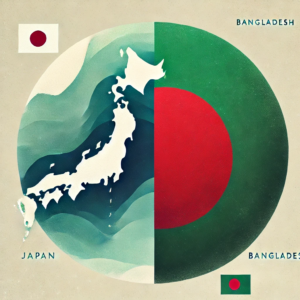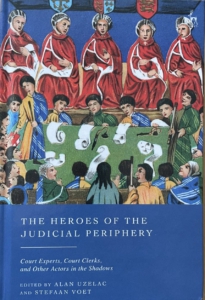Views
The Supreme People’s Court of the People’s Republic of China issued the Notice on Procedural Matters Related to Civil Cases Involving Foreign State Immunity
(This is written by Xiaoxuan Gu, a PhD student in School of Law, University of Macau)
The Foreign State Immunity Law of the People’s Republic of China (CFSIL) took effect on January 1, 2024.[i] To ensure its proper implementation and guide courts nationwide in lawfully and efficiently adjudicating civil cases involving foreign state immunity, the Supreme People’s Court (SPC) formulated supporting procedural rules. On March 26, 2025, the SPC issued the Notice on Procedural Matters Related to Civil Cases Involving Foreign State Immunity (hereinafter the “Notice”), which provides definitive guidance to courts at all levels in handling such novel foreign-related cases.
The Notice stipulates provisions on key procedural matters, including case acceptance criteria, centralized jurisdiction mechanisms, service of process rules, jurisdictional immunity review procedures, and protocols for obtaining evidentiary certifications from the Ministry of Foreign Affairs. Read more
Caught Between Legal Boundaries: Child Custody Disputes Across Japan and Bangladesh
I would like to express my sincere gratitude to MD Sanwar HOSSAIN, LLB (Hons) Wolverhampton University, MSS (Dhaka University), PgDiP (Northumbria University), Barrister at law (Hon’ble Society of Lincoln’s Inn), Advocate (Appellate Division) Supreme Court of Bangladesh and Managing Partner, S Hossain & Associates law office, for bringing the Bangladesh courts’ decisions to my attention.

I. Introduction
The breakdown of an international marriage often leads to complex cross-border disputes, especially when children are involved. Tensions can intensify if one parent decides to take the children to their home country, often without the consent of the other parent.
In such cases, when the countries involved are signatories to the HCCH 1980 Child Abduction Convention, the Convention’s mechanisms are designed to facilitate the prompt return of children to their country of habitual residence. This framework aims to prevent unilateral relocations that could have lasting impacts on the child’s stability. However, when one or both countries are not parties to the Convention, resolving such cases becomes significantly more challenging. In such cases, national courts are compelled to address competing custody claims, assess allegations of wrongful removal, and determine whether they have jurisdiction to hear the case, all while balancing, often quite differently, the best interests of the children involved.
The case presented here is just one of many unreported cases where a romance relationship turns sour, leading to lengthy and contentious legal battles across jurisdictions. This note will focus on the Bangladeshi court’s treatment of the case, as it offers useful insights into the court’s approach to handling such complex cross-border disputes.
Anti-Suit Injunctions and Dispute Resolution Clauses
By Adeline Chong, Singapore Management University
- Introduction
In two decisions decided within a fortnight of each other, the Singapore Court of Appeal considered anti-suit injunctions pursued to restrain proceedings allegedly brought in breach of arbitration agreements. The first case, Asiana Airlines, Inc v Gate Gourmet Korea Co, Ltd (‘Asiana Airlines’)[1] dealt with whether A could rely on an arbitration agreement between A and B to restrain B’s proceedings against C, a third party. The second case, COSCO Shipping Specialized Carriers Co, Ltd v PT OKI Pulp & Paper Mills (‘COSCO Shipping’)[2] considered whether an arbitration agreement covered a tortious claim. To put it in another way, Asiana Airlines mainly concerned the ‘party scope’ of an arbitration agreement while COSCO Shipping concerned the ‘subject matter’ scope of an arbitration agreement.[3] Where the anti-suit application is to restrain foreign proceedings brought in breach of an arbitration or choice of court agreement, ordinarily it would be granted unless ‘strong cause’ is shown by the respondent.[4] This provides an easier path for the anti-suit claimant compared to the alternative requirement of establishing that the foreign proceedings are vexatious or oppressive in nature. Read more
News
The International Committee of the Singapore International Commercial Court: A Transnational Appeal Mechanism
Written by Yip Man (Professor of Law, Yong Pung How School of Law, Singapore Management University)
To bolster Singapore’s position as an international dispute resolution hub, the Singapore International Commercial Court (International Committee) Bill[1] was introduced in Parliament on 14 October 2024 to establish the International Committee of the Singapore International Commercial Court (the SICC), a standalone body, to hear prescribed civil appeals and related proceedings from prescribed foreign jurisdictions.[2] The Bill was passed by Parliament on 12 November 2024. The Singapore International Commercial Court (International Committee) Act 2024 (the “International Committee Act”) is uncommenced.[3] Read more
Conference: “The Next 25 Years of Private International Law: What Does the World Need?”, 23 June 2025 in Groningen
The Ulrik Huber Institute for Private International Law is delighted to announce a special one-day conference entitled:
The Next 25 Years of Private International Law: What Does the World Need?
This conference marks a significant occasion: the celebration of Professor Mathijs ten Wolde’s 25-year tenure as a professor and director of the Ulrik Huber Institute. In honour of his contribution to the field and his mentorship of generations of legal scholars, the event will bring together former PhD students and distinguished colleagues from across the globe to reflect on the future direction of private international law.
Key Themes Include:
- The role of private international law in a changing world;
- Evolving cross-border legal frameworks (e.g. EU Regulations and HccH Conventions);
- Regional vs. global harmonisation efforts;
- The impact of digitalisation;
- New frontiers in family, commercial, IP, transport and procedural law.
We warmly invite all scholars, practitioners and students with an interest in private international law to join us for this day of dialogue and celebration. More information, including the conference programme, is available via the following link: https://www.rug.nl/rechten/agenda/2025/the-next-25-years
New Book and Seminar Heroes of the Judicial Periphery
 Last month the book The Heroes of the Judicial Periphery: Court Experts, Court Clerks, and Other Actors in the Shadows, edited by Alan Uzelac and Stefaan Voet (Hart/Bloomsbury Publising, 2025) was published. The book highlights the role of perhaps less prominent, but nevertheless important actors in (international) judicial procedures from a national, comparative and/or international perspective.
Last month the book The Heroes of the Judicial Periphery: Court Experts, Court Clerks, and Other Actors in the Shadows, edited by Alan Uzelac and Stefaan Voet (Hart/Bloomsbury Publising, 2025) was published. The book highlights the role of perhaps less prominent, but nevertheless important actors in (international) judicial procedures from a national, comparative and/or international perspective.
The European Civil Justice Centre (Erasmus School of Law) hosts a seminar in collaboration with the editors to launch the book on 4th July 2025 from 10-12 CEST.
Discussions on civil justice mostly focus on procedural rules, and the role of courts, parties and lawyers. This book addresses other actors that are often overlooked in academic and policy debates. It assesses the role of court experts, court clerks and court staff, and other actors on the ‘judicial periphery’ who play an important role and often co-determine the pace, outcome, and tone of the judicial process.
The knowledge and skills of experts may be indispensable at times, but it is among the most expensive, complicated and time-consuming means of evidence. The judges adjudicate, but where experts are involved in the process, they have a decisive impact on the outcome of litigation. Therefore, a principal focus of the book is on experts and how they are appointed, managed, and remunerated across Europe and the world.
The editors will discuss topical issues highlighting these ‘actors in the shadows’ and key experts will present their ideas based on the key findings of the book chapters, followed by discussion.
Registration for free here (hosted through Eventbrite)
Speakers & program:
10.00 Opening and welcome: Xandra Kramer
10.05 Alan Uzelac & Stefaan Voet – Heroes of the Judicial Periphery
10.15 Juraj Brozovic – The Case of Judicial Advisors in Croatia
10.30 Camilla Bernt – Expert Evidence in Custody Disputes and Child Protection Cases
10.50 Discussion
11.05 Michael Stürner – Experts on Foreign Law in German Civil Procedure
11.30 Adriani Dori & Xandra Kramer – The Role of Third-Party Funders in the Shadow of the Procedure
11.45 Discussion


